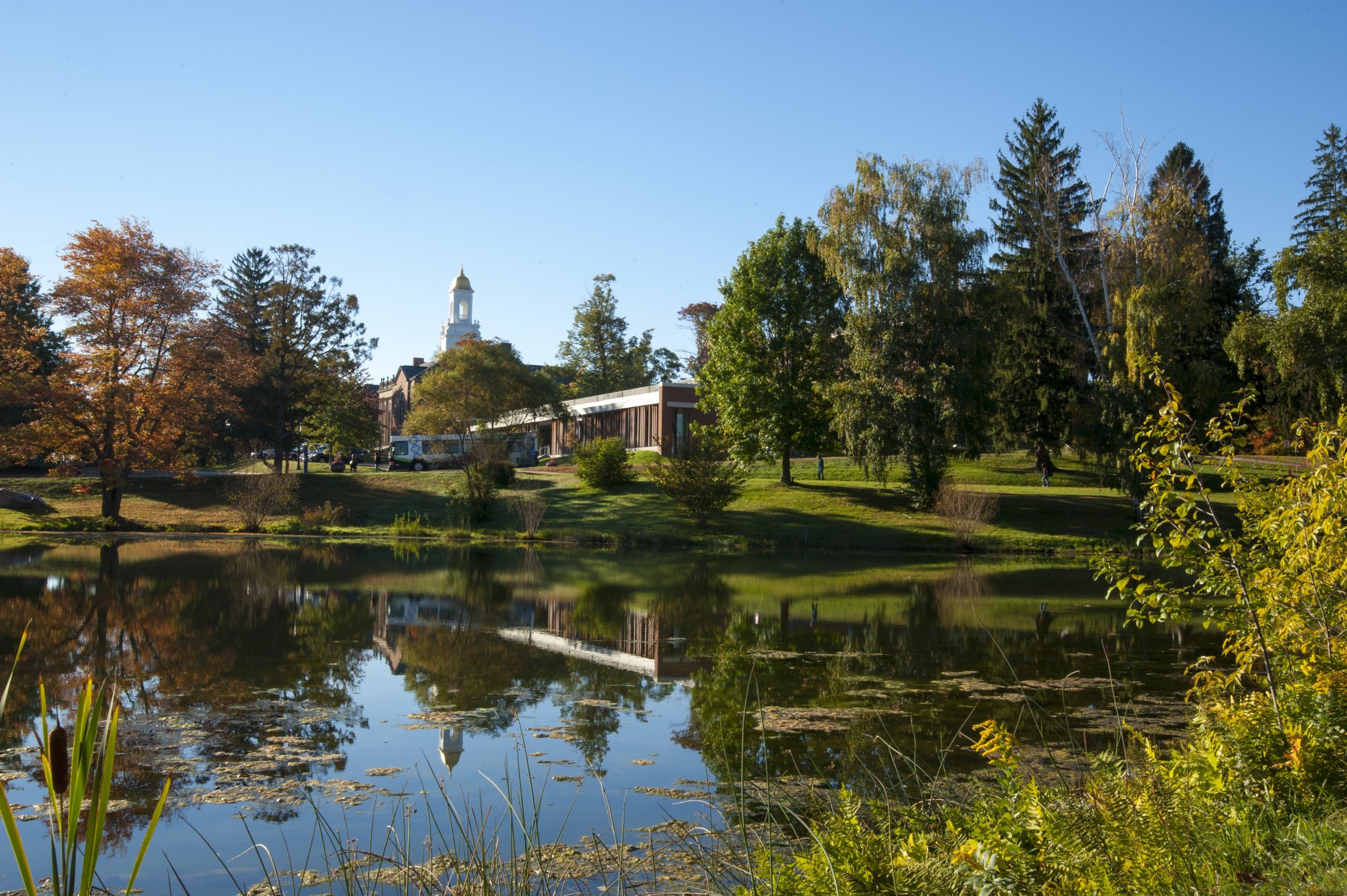
College radio has always been a place for discovering new music, offering alternative opinions on the news, and experimenting with new approaches to sound not found on commercial airwaves. Sometimes, doing something new on the radio can mean reviving an old concept in a new way.
Since late March, WHUS has been airing an original 10-part radio drama written and produced by Zachary Langlois, a junior history major at UConn. Several other students are involved in all aspects of the production.
“The City of Stones” is a spy drama set in Istanbul, Turkey, on the eve of World War II, in which two Americans become involved with an Italian national who is spying on Russians.
“The time period is a personal favorite,” says Langlois, whose first effort as a playwright was in high school. “It was a turbulent period just before things took off in the 1940s, around the time the Axis alliance was created.”
Period music often is used as a transitional device between scenes, and sound effects such as the tapping of typewriter keys and city street noise are used behind the narration and dialogue of the characters. Duke Ellington’s “East St. Louis Toodle-Oo” serves as the opening theme for the series.

The radio drama is broadcast on Saturday mornings at 9 a.m. during a program titled “Fiat Flux,” which was created by WHUS programming director Chris Sampson to provide a regular time slot for new programming and special projects outside of the station’s regular mix of varied music and public affairs shows.
“In order to survive the industry changes and technology shifts, radio must present unique and compelling content,” says Sampson. “Original radio theater is one way to do this.
“WHUS has always been willing to take chances that would not be viable in commercial media, but which are culturally rewarding,” Sampson adds. “One of our staff, Jason McMullan, pioneered this particular frontier with his Athena Radio Theatre. Now, with Zach’s original serialized radio drama, we are taking the next step.”
Most of the students involved in the production bring previous acting experience to the project, from either high school productions or comedy groups. The actors say there are different challenges with acting on radio instead of being on stage.
“It’s harder to get into character,” says Justin Miller, a junior classics major who plays the lead role of Jack Moody, the recently fired journalist who finds himself stranded in Istanbul and suddenly involved in international intrigue. “And when we do other parts, the accents need to be maintained.”
Corinne Goodman, a freshman animal sciences major, says the fundamental difference between being heard but not seen is the biggest acting challenge: “You have to incorporate everything into your character’s voice.”
The students say the project is a great learning experience for everyone involved, offering opportunities for creativity and problem-solving throughout the production process.
“It’s different from my normal radio experience because of how much goes into producing it,” says Nick Stevens, a sophomore marketing major and member of the WHUS staff who is the production coordinator for the drama. “There’s much more of a technical end to it because of differentiating between monologues and dialogue, and adding sound effects to bring a film-noir style script to life on the radio.”
Much like a network television series, the student cast and production crew has completed the first half of the series and is working to finish the last group of episodes as the spring semester winds down.
Langlois says it is too soon for the group to rest on their laurels.
“There’s a lot of satisfaction in having accomplished something, but there is still a lot of work to be done,” he says.
Episodes of “The City of Stones” will be available for download from the WHUS website.


